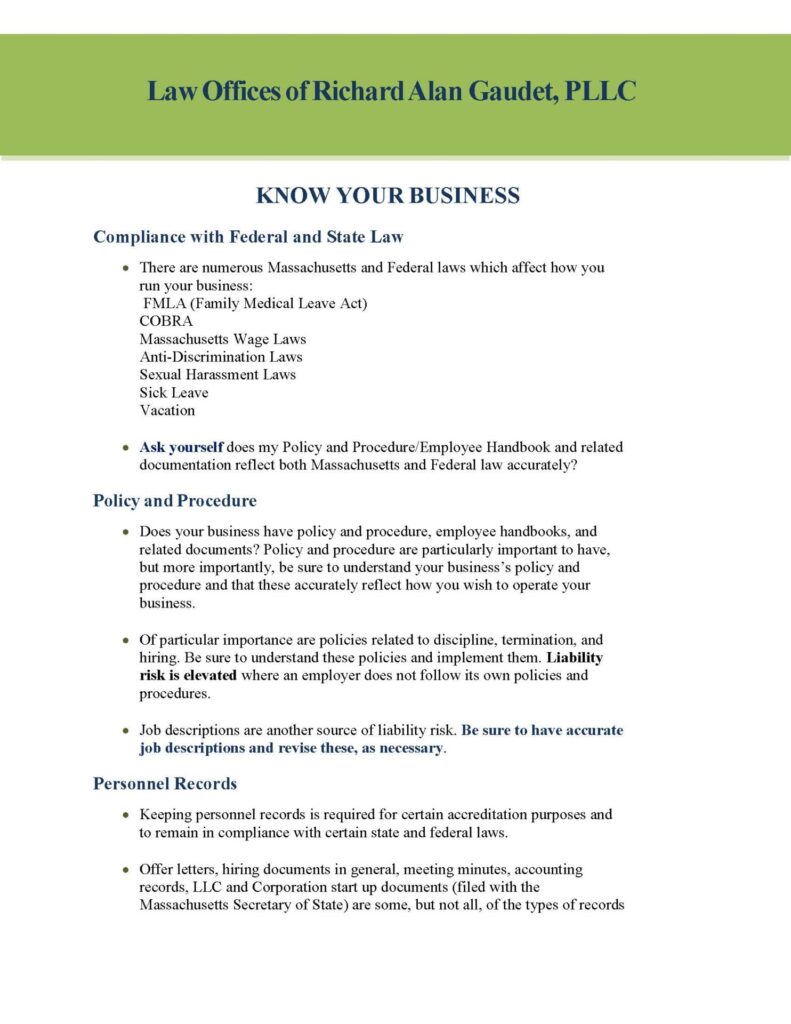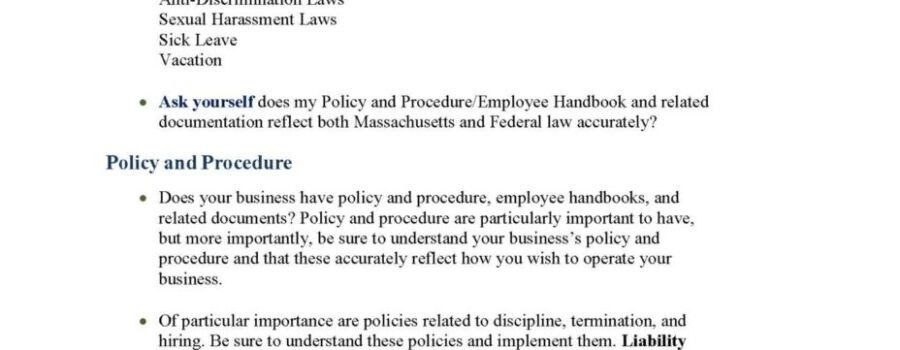
Collecting Business Debt
Businesses are afforded similar protection, under Massachusetts law, as consumers from unfair or deceptive trade practice – a violation of chapter 93A. This means, effectively, that a business may send a demand letter to another business alleging unfair or deceptive trade practice. The value of a demand letter is that (a) it may result in payment or (b) where a demand letter is ignored, it may result in that business being owed up to triple the amount owed the business if a judge finds unfair or deceptive trade practice under chapter 93A.
Sometimes, and for assorted reasons, a demand letter is not the ideal way to pursue a debt. Simple collection methods may be employed by an attorney to improve your chances of receiving what is owed the business.
Unemployment Claims
Unemployment Claims are unavoidable as Massachusetts requires unemployment insurance for all employers. Still, were you aware that unemployment may be challenged in some instances? It is possible, particularly where a former employee committed fraud or some other serious infraction against the business, to challenge the employee’s application for unemployment.
Liquidation/Dissolution
There are procedures required by Massachusetts law with respect to wrapping up a company when it is closing its doors. Following such procedures is necessary.
In addition to paying vendors, settling outstanding accounts, dealing with employees and their needs, the business needs to follow certain procedures by filing the necessary paperwork with the Massachusetts Secretary of State.

DISCLAIMER:
The information provided in the pages and posts of this website are for general informational purposes only. The information presented on this site is not legal advice, and no attorney-client relationship is formed by the use of this site.


